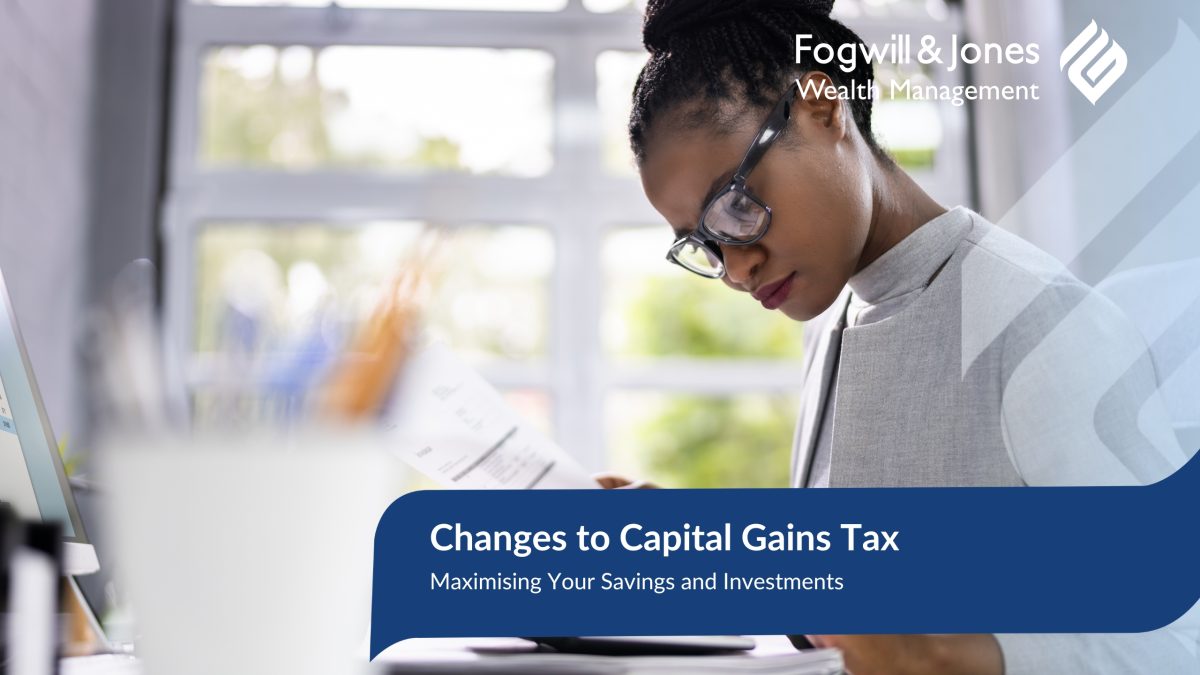When you’re in your 20s, planning for retirement can seem like a distant and irrelevant concept. Between student loans, rent, and saving for immediate goals like travel or buying your first home, it’s easy to put pensions on the back burner. But the reality is that the earlier you start pension planning, the better positioned you’ll be for long-term financial security.
At Fogwill & Jones, we work with clients of all ages to help them prepare for their future. For those under 30, taking steps now can dramatically improve the quality of your retirement years, thanks to the power of compounding growth and strategic saving. As independent financial planners, we offer tailored advice to make pension planning simple, efficient, and rewarding.
Why Start Early?
One of the most compelling reasons to begin pension planning in your 20s is compound interest – the concept of earning interest not only on your savings but also on the already accumulated interest. The earlier you begin contributing to your pension, the more time your money has to grow.
Example:
Sarah starts saving £200 a month into her pension at age 25.
Tom delays saving until he’s 35 but contributes £300 a month to make-up for lost time.
By retirement age (67), Sarah could have a pension pot worth around £340,000, assuming 5% annual growth.
Despite contributing more each month, Tom’s pension pot could be worth only £270,000.
The key takeaway? Starting early, even with small contributions, can have a significant impact on your overall pension savings.
The Benefits of Pension Planning in Your 20s
Employer Contributions: If you’re employed, it’s likely your workplace offers a pension scheme. Under auto-enrolment rules, employers must contribute to your pension alongside your own savings. It’s essentially free money towards your retirement, so don’t miss out!
Tax Relief on Contributions: The government provides tax relief on pension contributions, making your savings even more efficient. For every £80 you put into your pension, the government adds £20 (basic rate relief), which instantly boosts your contributions.
Long-Term Financial Freedom: Planning for retirement early allows you to control your future financial independence. Starting early means you’ll need to save less overall each month to reach your target, giving you flexibility as life evolves.
Access to Expert Financial Planning: By working with independent advisors like Fogwill & Jones, you’ll receive a clear, actionable plan tailored to your lifestyle, goals, and circumstances. From understanding your pension scheme to exploring investment opportunities, we ensure your strategy is both effective and flexible.
How Fogwill & Jones Can Help
At Fogwill & Jones, we specialise in helping clients secure their financial future. For those under 30, our approach focuses on clear, actionable steps:
Maximise Employer Contributions: We review your workplace pension options to ensure you’re making the most of any employer contributions available to you.
Optimise Your Savings: Our advisors can help you identify how much to save each month to meet your retirement goals without sacrificing your current lifestyle.
Invest Wisely for Long-Term Growth: With decades ahead, your pension savings have time to ride out market fluctuations. We help you allocate your pension investments to maximise growth while managing risk.
Plan for Changing Circumstances: Your career and life goals will change over time. We ensure your pension strategy evolves with you, whether you change jobs, become self-employed, or take a career break.
Case Study: Helping Tom Build His Pension Early
Tom, a 28-year-old marketing executive, came to Fogwill & Jones unsure about his pension contributions. After a review, we discovered he wasn’t taking full advantage of his workplace scheme, and his contributions were below the recommended level for his age.
Our solution:
- We increased Tom’s contributions to match his employer’s offering, which effectively doubled his monthly savings.
- We invested his pension pot in a growth-focused portfolio designed for long-term returns.
- We set a realistic savings target to help Tom achieve a comfortable retirement without affecting his current financial priorities.
By acting now, Tom boosted his pension savings trajectory and is on track to achieve financial independence by retirement age.
Don’t Delay Your Future
Pension planning might not seem urgent when you’re under 30, but the decisions you make today will shape your financial future. Starting early gives you more flexibility, better returns, and less stress down the line.
At Fogwill & Jones, we help clients take control of their pensions and plan for the future they want. Whether you’re just starting your career or looking to review your savings strategy, we’re here to guide you every step of the way.
For personalised pension advice, contact us on 01142 588899 or visit our website. Secure your future now, and let us help you achieve your retirement goals with confidence.








